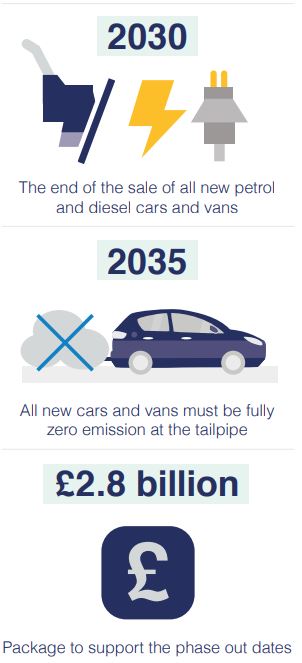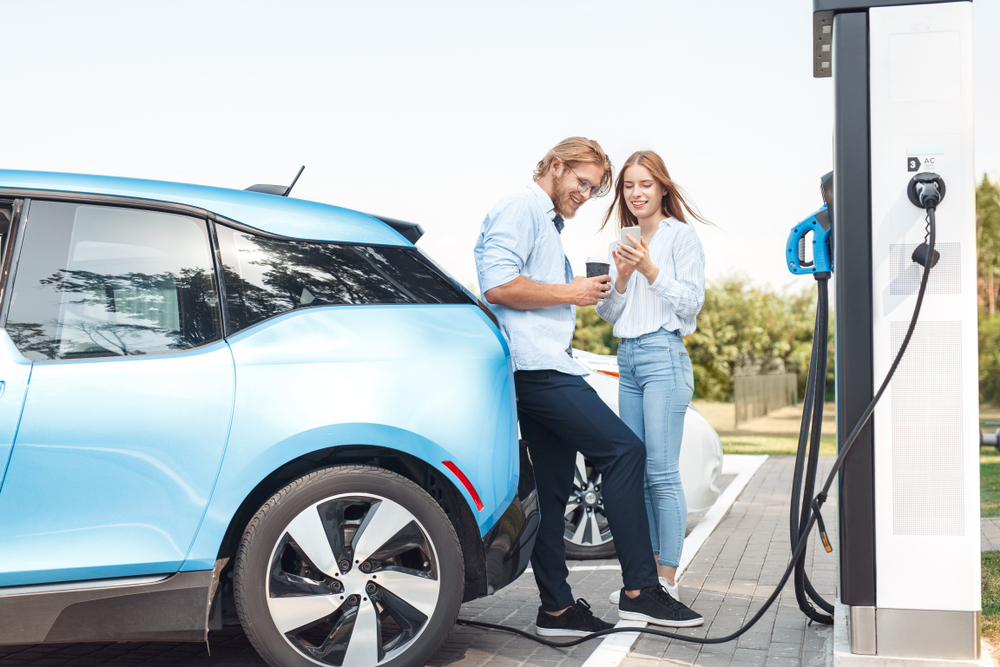Petrol Cars – Stay Ahead: Learn Your Options for Petrol Cars After the 2030 Ban!
Can I still drive my petrol car after 2030 ?
Petrol Cars – the short answer is yes, but from a serious point of view, what is the timeline for the next few years leading to 2030, and how do you make an informed decision on what type of car to lease or buy?
The timeline to transition from fossil fuel is set out in a paper by the HM Government entitled transitioning to zero emissions cars and vans by 2035.

The plan outlines that by 2030 the UK will see an end to the sale of all new petrol and diesel cars and vans, and by the year 2035, all new cars and vans must be fully zero emission at the tailpipe.
Can I buy a used petrol or diesel car after 2030?
Yes, as long it is roadworthy, the ban only affects new cars; however, expect stringent rules and taxes to use one on the road.
What about a Hybrid?
A mild hybrid (MHEV) or Plug-in Hybrid (PHEV) is a car that uses a petrol engine, a battery and an electric motor will not be banned, but will have until 2035 to produce zero emissions. After this time, they will only be available on the second-hand market.
Is there a scrappage scheme?
Birmingham City Council has a Clean air zone vehicle scrappage and travel credit scheme,[1] with up to £2,000 available for qualifying residents. London is launching a similar scheme in 2023[2]
What Happened to Electric Vehicle Grants?
Now that the initial government grants for new electric cars and home chargers have been phased out, what steps will encourage us all to move to an electric vehicle?
This initially worked according to SMMT (Society of Motor Manufacturers and Traders). They said that at the end of October 2022, more than 590,000 battery electric cars were registered in the UK, as shown in the chart below.
2022 saw the most significant annual increase in registrations, with more than 395,000 battery electric cars registered, showing a growth of 92% from 2020. So, what’s the incentive going forward?
I Live in a Rented Flat. Can I have an Electric Car?
Yes, you can if you have access to public charging. Most car journeys are around 21 miles, well within the range of modern electric cars. A grant is still available for a home charger if you live in a flat or rent a residential property; up to £350 is available to eligible applicants; you must have off-street parking to qualify.[6]
Company Car Tax Incentive
Benefit in kind (BIK), the favourable company car tax rates for zero-emission cars will remain until at least March 2025. London congestion charge remains at a 100% discount, and 5p per mile is the current rate of reclaimable mileage. Some London boroughs offer free or reduced-charge parking for electric vehicles.[5]
How Do You Charge an Electric Car?
Most EV cars come with a Type 2 Charger needed for wall boxes and public charge points; home chargers for 3-pin plugs are generally not supplied (check with supplier); however, they are readily available.
For illustration purposes, Battery Size = 35 kWh 350V 0-100% Charge
3 Pin Plug – 3kWh (Average) 11 Hours 40 mins
EV Wall box Unit/Public chargers -7.7kWh 4.3 Hours
Rapid Chargers 22kWh 2Hours
Rapid Charge 50kWh 42 minutes
Are More Charge Points Needed?
Yes, the Local EV infrastructure Fund (LEVI) launched in 2022 was designed to encourage local authorities two apply for grants to support the installation of charge points. Nine of 42 local authorities who applied for a share of the £10 million grant were successful.
One of those authorities, Warrington Borough Council, states it will use the funds to roll out up to 200 additional on-street chargers by 2030; they currently have 68 (7kWh) operated by BP Pulse.[3]
The other winners of the pilot fund are Barnet, Dorset, Durham, Midlands Connect (with Lincolnshire as a lead authority), Kent, North Yorkshire, Nottinghamshire, and Suffolk.

Rapid Charging Fund
The rapid charging fund is Part of the overall plan to increase the number of EV charge points, especially in prohibitively expensive and uncommercial areas.
H M government’s ambition by 2023 is to have at least 6 high-powered 150 -350 KW chargers at every motorway service station in England.
By 2030 the ambition is to have a network of 2,500 high-powered charges across England’s motorway and A roads by 2035, 6,000 high-powered charge points across England.[4]
Improving EV Charge Experience
At the moment, everybody is happy to see more and more chargers popping up; however, improving the quality of the experience using them is an afterthought.
Part of the HM government plan for the future is to ensure all types of drivers have easy access to public charge points; examples of these I have experienced myself on numerous occasions.
Mandating a single payment metric
To enable consumers to compare the price across different charging networks.
Reliability of Electric Vehicle Charge Points
Improving the reliability of the charging network so that consumers can feel confident that the charge point is working as expected.
Easy locations
Enabling consumers to quickly locate the right charge points for all their needs through open public EV charge point data
Standardising
They are standardising the payment methods whether consumers choose to pay using smart technology or non-smart payment systems.
Vehicle Manufacturer’s Commitments: Can I still drive my petrol car after 2030
Having zero emission ambitions is desirable, but you must have the Motor Manufacturers on board to make it a reality. Several top manufacturers have committed to work with theUK Government to phase out ICE (internal combustion engine) vehicles and invest in future technologies in the next 5 to 10 years.[7]
Aston Martin
Aston Martin will launch an all-electric or hybrid model for all products in 2024.
Audi
From 2026, Audi will only launch pure electric models and phase out internal combustion engines from 2033.
Bentley
All Bentley models to be fully electric by 2030
Ford
In Europe, 100% of car sales to be all-electric, and 2/3 of commercial vehicles are expected to be all-electric or plug-in hybrid by 2030
Honda
Honda sales to be 100% zero emissions globally by 2040, including sales of 100% battery electric and fuel cell electric vehicles (FCEVs)
JLR
Jaguar to be all-electric from 2025. Jaguar sales are expected to be 100% zero emissions I’m Land Rover sales are expected to be 60% zero emissions by 2030.
Mini
from 2025 mini aims for half of its global sales to be zero-emission vehicles; in 2030, it will be a fully electric brand
Nissan
All new Nissan models will be electrified which, includes hybrids and fully electric vehicles, by 2030
Renault
By 2025, half its European models will be all-electric, and they have committed to EVs representing 30% of its sales.
Stellantis
All models available in Europe will be hybrid or electric by 2025.
Toyota
Plan to introduce 15 electric vehicle models by 2025 and aim to have sales of more than 5.5 million electrified vehicles, including more than 1,000,000 zero-emission vehicles.
Vauxhall
100% of cars and vans sold to be all-electric by 2028
Volvo
All Volvo motor car sales will be 100% fully electric by 2030
Volkswagen Group
VW expects 70% of sales in Europe will be electric by 2030, and they will phase out ICE cars in Europe between 2033 and 2035
I can’t afford an electric car!
Did you know that most cars in the UK are leased or on PCP? Electric and Hybrid cars are expensive to buy but great value to lease.
From a personal lease point of view, its excellent residual values often mean you can get a higher specification model than you first may realise and a better all-around leasing deal.
Petrol Cars – 2030 FAQ’s – Can I still drive my petrol car after 2030
There is no time frame for the use of roadworthy fossil fuel vehicles.
2030 in the UK refers to the ban of the sale of new Petrol and Diesel engine cars. Hybrid cars that also use petrol and diesel are able to be purchased new up until 2035.
New CO2 neutral E-Fuels are currently being developed that will replace fossil fuels and will work with current technology.
You will be able to buy new petrol cars in the UK ,up to 2030. The used car market has no time frame ,as long as they comply to the law and are able to function they will be around for a few years yet.
Yes, currently there is no time frame for the total ban of fossil fuels. Providing your vehicle is roadworthy ,abides by the laws at the time and you can afford the petrol!
Yes, there is no reason why there will not be a vibrant used car market in the UK.
Stand by your normal buying strategy, if you normally buy and you have any doubt about future values, lease a car. You can always reassess your options after the lease has ended.

